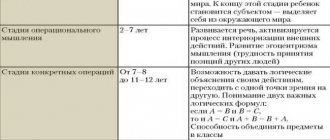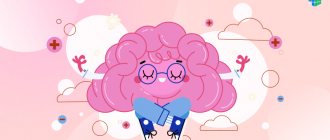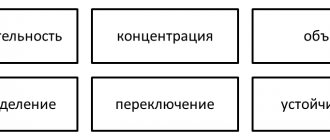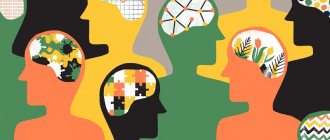The concept of will in psychology
The concept of will in psychology
Will is one of the most complex concepts in psychology. There are several interpretations of this concept:
- Will is a person’s conscious regulation of his actions and actions, which require overcoming internal and external difficulties. (Soviet general psychology)
- Will is a form of mental reflection in which what is reflected is an objective goal, incentives to achieve it, and emerging objective obstacles; the subjective goal, the struggle of motives, and volitional effort become reflected; the result is action and satisfaction in achieving the goal. The obstacles that a person has to overcome on the way to achieving a goal can be both internal and external.
- Will is a side of consciousness, its active and regulating principle, designed to create effort and maintain it for as long as necessary.
In other words, will is a human ability, manifested in self-determination and self-regulation of its activities and various mental processes.
Thanks to the will, a person can, on his own initiative, based on a perceived need, perform actions in a pre-planned direction and with a predetermined force. Moreover, he can organize and direct his mental activity accordingly. By an effort of will you can restrain external manifestations of emotions or even show the completely opposite.
The main functions of the will are incentive, stabilizing and inhibitory.
The incentive function of the will is ensured by human activity. In contrast to reactivity, when an action is determined by a previous situation (a person turns around when called), activity gives rise to action due to the specific internal states of the subject, revealed at the moment of the action itself (a person in need of receiving the necessary information calls out to a friend).
Stabilizing function – maintaining activity at the proper level when external or internal interference occurs.
The inhibitory function of the will, acting in unity with the incentive function, manifests itself in restraining unwanted manifestations of activity. A person is able to inhibit the awakening of motives and the implementation of actions that do not correspond to his worldview, ideals and beliefs. Regulation of behavior would be impossible without the process of inhibition. In their unity, the incentive and inhibitory functions of the will ensure overcoming difficulties on the way to achieving the goal.
Based on the basic functions of the will, we can speak of volitional regulation of behavior.
Volitional regulation of behavior is the conscious direction of mental and physical efforts to achieve a goal or restrain them.
For the emergence of volitional regulation, certain conditions are necessary - the presence of obstacles and obstacles.
External obstacles - time, space, people’s opposition, physical properties of things, etc.;
Internal obstacles - relationships and attitudes, painful conditions, fatigue, etc.
Most often in a person’s life, will manifests itself in the following typical situations when:
• it is necessary to make a choice between two or more thoughts, goals, feelings, attitudes that are equally attractive, but require opposite actions, and are incompatible with each other;
• no matter what, you must purposefully move towards your intended goal;
• one should refrain from executing the decision due to changed circumstances.
Will is not an isolated property of the human psyche, therefore it should be considered in close connection with other aspects of his mental life, first of all, with motives and needs. Will is especially needed when the motives and needs that directly motivate activity are relatively weak or there are strong motives and needs that compete with them. A strong-willed person suppresses some of his motives and needs in order to satisfy others. We can say that will consists of the ability to act in accordance with a goal, suppressing immediate desires and aspirations.
Volitional act (action)
The main component of will is the volitional act (action). Volitional actions are characterized by the presence of a goal, as well as obstacles, difficulties, and the presence of a kind of tension experienced during their implementation.
There are simple and complex volitional actions.
Fig.1. The structure of simple volitional action
Fig.2. The structure of complex volitional action.
The connection of the will with other mental processes
Feelings are a powerful driver of the will. A person who is indifferent to everything cannot be a person of strong will, because will presupposes awareness of one’s feelings, their assessment and power over them. “Slaves of their passions” (gamblers, drug addicts, etc.) are always weak-willed people. Volitional action in itself can give rise to a new strong feeling - a feeling of satisfaction from a duty accomplished, an obstacle overcome, a goal achieved, against the background of which the old, suppressed feeling is often forgotten.
The connection between the will and thinking is deep. A volitional action is a deliberate action: before forcing oneself to act as is necessary in given circumstances, a person must understand, realize, and think through his actions. Before overcoming external obstacles that stand in the way of the goal, you need to find the optimal paths, think about the idea of action and draw up a plan for it.
Also, volitional action is closely related to the emotional sphere of the individual and imagination. When performing it, a person experiences certain emotions and assumes an imaginary result.
Physiological foundations of will
Physiological mechanisms of volitional behavior and volitional actions can be presented as follows. The motor area is located in the parietal cortex of the cerebral hemispheres. It is connected to all areas of the cortex, including the cortical ends of all analyzers. This connection ensures that excitation arising in any part of the cortex has the opportunity to reach the motor area and cause a similar process in it.
The reflex nature of volitional regulation of behavior involves the creation of a focus of optimal excitability in the cerebral cortex (this is a working focus in the cortex). The reticular formation is important in the general mechanism of volitional regulation: a kind of filter that selects some impulses going to the cortex and retains others that are not of vital importance.
PC. Anokhin put forward the concept of an action acceptor. Its essence is that nervous processes are ahead of the course of external events. Based on past experience, humans (and animals) anticipate and anticipate future effects on the nervous system. Based on the signal, the entire complex of neural connections, the entire system of associations developed through repeated repetition, are restored in the brain.
An important role in the implementation of volitional actions is played by the frontal lobes of the brain, in which, as studies have shown, the result achieved each time is compared with a previously drawn up goal program. Damage to the frontal lobes leads to abulia (painful lack of will).
Will, as the regulating side of consciousness, has a conditioned reflex nature. On the basis of a temporary nervous connection, a wide variety of associations and their systems are formed and consolidated, which in turn creates the conditions for purposeful behavior.
A person has the inherent ability to accumulate information and act on its basis, as well as generalize information and knowledge received from outside, which is achieved with the help of the second signaling system. On the basis of second-signal connections, all conscious and expedient regulation of human behavior is carried out, the choice of place, time, nature, method, and intensity of action occurs when implementing the received information.
In humans, the mechanism of preliminary real action is developed much better than in animals; the system of associations is restored on the basis of the most minimal and distant stimulus (a word, an object, its properties, etc.).
Thus, consciously controlled behavior is the result of the interaction of complex brain physiological processes and environmental influences.
Volitional personality traits
From childhood, a person performs actions and commits actions that are, to one degree or another, regulated by the will. Life practice consolidates the regulation of actions in the form of volitional properties of the individual.
The volitional personality traits include the following:
1. Purposefulness (manifested in the ability to set and achieve socially significant goals).
2. Decisiveness (manifests itself in a quick and thoughtful choice of goal, determining ways to achieve it). He does not have enough strength to overcome contradictory thoughts and feelings, to direct them in any specific direction.
All this leads to the fact that a person wastes time, and then, when he nevertheless finds himself faced with the need to make a choice, he grabs the first one that comes along, maybe even the worst goal. Indecision also manifests itself in the fact that a person, without thinking it through, without weighing it, makes a hasty decision.
3. Perseverance (manifests itself in the ability to direct and control behavior for a long time in accordance with the intended goal).
There are people who, at first glance, seem exceptionally persistent. A close acquaintance with them shows that they are simply stubborn. A stubborn person recognizes only his own opinion, his own arguments and strives to be guided by them in actions and actions, although these arguments may be erroneous or, in any case, not the best.
4. Self-control (or self-control) (manifests itself in the ability to restrain mental and physical manifestations that interfere with achieving a goal). Independence (the ability to set goals on one’s own initiative, find ways to achieve them and practically implement decisions made). The property of the will that is opposite to independence is suggestibility. People who are suggestible cannot, on their own initiative, begin and complete a more or less complex volitional action; They are active if they receive instructions, orders, advice. They are quickly influenced by other people.
Strong-willed personality traits also include courage, bravery, courage, perseverance, and discipline. But they are to a large extent an individual combination of the volitional qualities discussed above.
People with a high level of development of certain volitional properties are rightly called people of strong will. There are people who have a low level of development of all volitional properties. Such people are usually called weak-willed. Will as a regulator of behavior is formed in the process of life and activity. Daily regular work is of primary importance in the development of the will and the formation of volitional properties of the individual.
Volitional actions
Volitional actions are consciously controlled actions that are aimed at overcoming difficulties and obstacles in achieving set goals. They arise at a moment when a person is deprived of motivation, vitality and energy, but at the same time clearly understands what and why he needs to do.
The most important components of volitional actions:
- setting goals;
- thinking through ways and techniques to achieve the goal;
- action planning;
- overcoming negative motives;
- decision-making;
- implementation of the decision made;
- evaluation of what has been done;
- formation of an attitude to perform volitional actions in the future.
Volitional action is a rather complex process, including a whole chain of different stages and a sequence of different stages and phases. In the modern world there are so many irritants (advertising, the Internet, sounds) that it becomes increasingly difficult for a person to cultivate this valuable quality that largely determines success.
The process of developing the will
The emotional-volitional sphere of development helps to focus on the main thing. A person throws aside everything unimportant. How does the process of developing volitional effort proceed step by step?
- Formation of the task. Before any goal can be realized, it must be invented. Goals can be global, or they can be very small, passable. A person may consider some of his ideas feasible, while others he will perceive as something fantasy.
- Thinking about the path. When a goal is formed, a person thinks about how he will implement his project. This could be a step-by-step elaboration of the plan or a sketch of which side is best to approach the task.
- Implementation of the idea. When the decision to complete a project is made, a person has no choice but to take action.
Life position influencing the will
People lead different lifestyles. Some people prefer to relax in front of the TV, but then engage in active physical labor during working hours. And some work with their heads, and in their free time they engage in extreme sports. But it's a perfect balance that doesn't come around very often. What life positions exist that influence a person’s volitional efforts?
- Active. A person can make decisions and be responsible for his choices. A person sets goals and achieves their goals. Alternating active physical activity with brain activity helps to find harmony. An active life position forces a person to participate in various events, demonstrations and social projects.
- Passive. The emotional-volitional sphere is very poorly developed in some people. A person can and will set goals for himself, but will not be able to complete them, because he will not find the internal motivation to start acting. The desire to get something will be less pronounced than laziness.
Character
Parents shape the child into what they want and can, until the age of 8. Then the individual develops his own consciousness, and the child begins to independently think about his actions and decisions. Character is a set of different values, personal qualities and inclinations of a person. What is a strong-willed character, and what does it consist of?
- Determination. A person must be able to make their own choices and take responsibility for them. Today many people have big problems with this point. People can make a decision, but not everyone wants to be responsible for it.
- Self confidence. A strong-willed character can only be formed in a person who has good self-esteem. A person must know exactly his strengths and weaknesses.
- Formation of will. By setting goals and achieving them, a person builds character. Thanks to success, a person’s mood and self-esteem rise and it seems that everything in life is easy and simple. Only by overcoming obstacles can a person form what is called will.
What is will
This human quality has attracted the attention of philosophers and psychologists for hundreds of years; they have been arguing about it, trying to prove the independence of the human will from higher powers and find ways to help control volitional processes. But so far the volitional sphere has been studied much less than the cognitive and emotional.
Any human activity - both external and internal - has two types: involuntary and voluntary.
- An involuntary, spontaneous, impulsive type of activity is controlled primarily by reflexes - the mental reactions of our body to external influences or internal changes. This type of activity includes, for example, involuntary attention when a person turns around at the sound of a slamming door or a flash of light. Involuntary or impulsive behavior also includes abruptly withdrawing a hand from a hot frying pan or the crying of an offended child.
- The second type, or the highest level of activity, which in this case is called activity, is voluntary. This means that performing actions requires volitional efforts, that is, conscious tension to overcome external obstacles or internal resistance: weakness, doubt, indecision, cowardice, laziness, etc. Sometimes these efforts can be insignificant and even invisible to the person himself. For example, in order to lie down on the sofa to rest, serious volitional efforts are not required. What if to do this you need to break away from an interesting activity, interrupt communication on the Internet, because it’s late and time to sleep? Then, apparently, some effort will be required. And in other cases, you have to overcome serious internal resistance, making a difficult decision in a situation of difficult choice.
Voluntary or volitional behavior, like the will itself, is not an innate ability of a person. Until the age of 5-6 years, involuntary activity predominates in a child, but gradually his ability to consciously regulate his behavior develops, and will becomes an important part of life.








